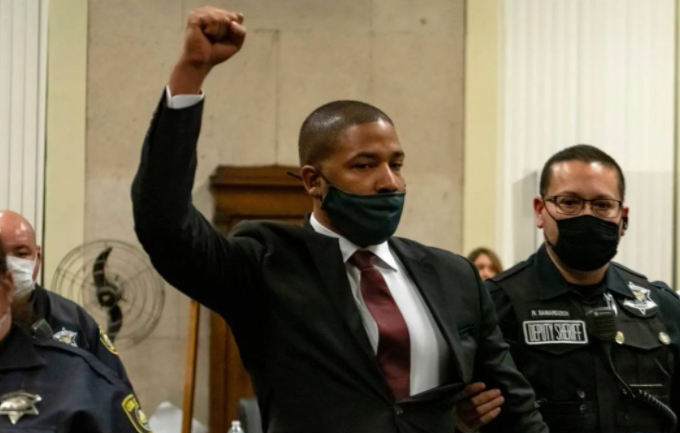Jussie Smollett was reportedly released from jail after posting $150,000 bond on Wednesday night (March 16), just six days after he was sentenced to 150 days and 30 months of probation for staging a hate crime. According to CNN, an Illinois appeals court granted an emergency motion by his defense attorneys, allowing him to stay home as the appeals process plays out.
When the judge handed down his sentence on Friday (March 11), the former Empire actor said matter-of-factly, “Your honor, I respect you and I respect the jury, but I did not do this. And I am not suicidal. And if anything happens to me when I go in there, I did not do it to myself. And you must all know that.”
He was then led out of the courtroom with his fist in the air. Defense attorney Nenye Uche called the sentence “a disgrace” in a subsequent press conference and added, “There is no room for politics in our court system. Regardless of what you think about this case … the real question is, should Black men be walked into jail for a Class 4 felony?”
Jussie Smollett reacts to jail sentence:
“I am innocent, and I am not suicidal. If I did this, then it means that I stuck my fist in the fears of Black Americans in this country for over 400 years and the fears of the LGBT community.”pic.twitter.com/hWfFYSzicy
— Pop Crave (@PopCrave) March 11, 2022
Cook County Judge James Linn criticized Smollett for a half-hour as he delivered his decision, telling him he “destroyed” his life. Hours after he was locked up, his brother uploaded a video to Instagram and reiterated his brother wasn’t suicidal. He also revealed officials added a note to his file claiming he was at-risk for “self-harm,” something his brother refuted.
However, Smollett refused to eat for the last six days, raising the alarm. Smollett’s defense filed an emergency motion last week, arguing he’d be “irreparably harmed” if he serves a sentence for convictions that may be reversed, adding he’d probably serve his jail time before the completion of his appeal. They also brought up COVID-19 risks, citing his compromised immune system.
The court granted the attorneys’ motion, explaining it would be “unable to dispose of the instant appeal before the defendant would have served his entire sentence of incarceration.”






